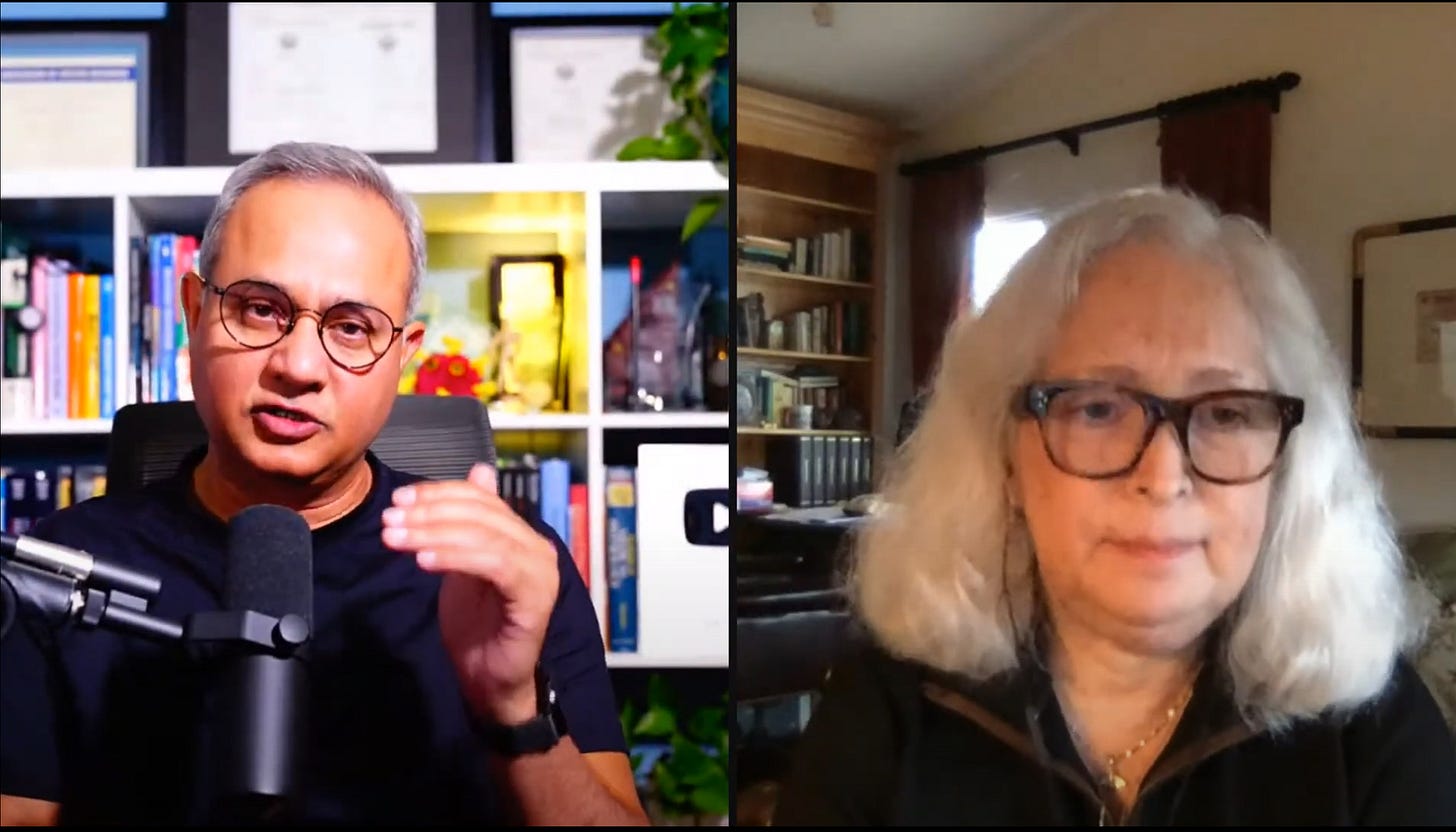UPDATE: First ever NIH study on vaccine injury…
Another NIH/NIND vaccine injury study participant comes forward
Last week, Koolbeens’ Café reported that questions are being raised about an observational (preprint) study by the National Institute of Neurological Disorders and Stroke (NINDS) at the National Institutes of Health (NIH) that evaluated 23 patients who reported new neuropathic symptoms within one month of SARS-CoV-2 vaccination.
Purporting to evaluate patients’ responses to immunotherapy with corticosteroids or intravenous immunoglobulin (IVIg), the study authors claimed that at five to nine months post-symptom onset, “three non-recovering patients received intravenous immunoglobulin with symptom resolution within two weeks.” In other words, all study participants experienced a full recovery by the end of the study period.
However, in an interview with Dr. Mobeen Syed, Brianne Dressen, who was one of the study’s first participants, explained how she is still not fully recovered, despite the claim made in the NIH study.
Since Dressen’s interview with Dr. Syed, several more study participants have come forward saying they are still suffering despite the study claims.
One of these is Dr. Danice Hertz.
Dr. Hertz is a 65-year-old retired gastroenterologist who suffered severe neurological symptoms “almost immediately” after receiving her first Pfizer COVID-19 vaccine in late December 2020 during the second week of the vaccine rollout. Dr. Hertz says she thought she was having an anaphylactic reaction, which turned into a “severe acute illness” with paresthesias (burning or prickling sensation). “I felt like someone was pouring acid on me,” she explains. She experienced tinnitus, blurred vision, twitching, shortness of breath, chest pain, tachycardia, and a band-like constriction around her chest.
Dr. Hertz was also among the 23 people with immune mediated neuropathies who were evaluated and treated as part of the NIH observational study led by principal investigator Dr. Avindra Nath. Dr. Hertz says she received three courses of oral steroids, which she says, “didn’t do anything for me,” and one subcutaneous treatment of intravenous immunoglobulins (IVIg) after the study was already closed. “I did not recover,” she tells Dr. Syed.
Seventeen months later, Dr. Hertz says her illness has slowly improved, but many of her symptoms persist to this day. To find out more about Dr. Hertz’s experience check out Dr. Mobeen Syed’s interview here.
Should the paper be retracted?
According to Dr. Hertz, to date ten patients in the NIH study have still not recovered, despite the study claims. “On the other hand, it’s [the study] a start. It will be the first to say there are neurological side effects from the vaccines. We don’t want it retracted, but it would be nice if it were corrected,” she says.
Dr. Hertz says that her understanding was that the NIH was going to release something about the study to the public back in March 2021. Instead, it took more than another year before the study would appear on a preprint server. “It would have been really helpful to educate the medical community about these injuries. I’ve spent so much energy trying to convince so many doctors of what was happening to me, and I don’t know how many of them even believed me or not.”





Dr. Syed's interview with Dr. Hertz was compassionate and informative, and if you're reading this, Dr. Hertz, many thanks!! I would like to comment on the NIH study. (1) By being in medRxiv, *optimally* the paper will receive thoughtful review from the peer and general community. Hopefully with feedback, it will undergo the step of peer review for a medical journal as well, to receive wider attention from the medical and research community. (2) The purpose of the study was to investigate plausibility that neurological consequences of SARS-CoV-2 vaccination are immune-mediated, and the authors provide several lines of evidence to support that. (3) It does *not* appear to be the case that all patients recovered or improved. While 3 patients who had not recovered improved after intravenous gamma-globulin, Table 4 shows that many patients didn't recover or only partly recovered (I believe to get to the exact number, you might have to look in the first 3 rows--that adds to 23 patients; the 4th row for IVIG is 3 of the patients from the top 3 rows--confusing!!). Partial or total recovery with immune-directed therapy supported the study's hypothesis (immune dysfunction contributes to post-vaccine neurological symptoms)